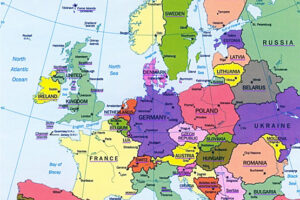RUSSIALINK: “Russia, Europe need common dream about future – Russian human rights council head” – Interfax

MOSCOW. Feb 20 (Interfax) – Russian presidential human rights council head Valery Fadeyev has said there is no vision of the future in Russia and suggested giving up “hysterical consumption” as part of a transition to “a new type of life” in the 21st century.
“It is a big problem: we don’t have a dream, and that means we don’t have a vision […] What dream do we have in mind when we take specific social or economic actions? What will happen to the state, to society? What will they be like in 50 years, in 100 years?” Fadeyev said the international public discussion Social State: Paradigm 2020 held in the Public Chamber.
It is a long-term issue, but “we speak little about it,” he said.
“The 21st century has come, it’s a different type of life. It should be more humane, people should stop stressful hysterical consumption. It should be a denial of consumer society. It should be a denial of capitalism oriented at maximizing profits. It should be a different economic system. We need to give up the idea of maximizing profits,” Fadeyev said.
At the same time, he said he believes “there is no need to give up the market system of private initiative.”
He suggested that Russia and Europe should form a common vision of the future.
“There are many different aspects here that we need to think about to form a vision of the future and the social system to which we all should aspire, Russia and Europe. And I think these [ideas], which are probably just dreams now, are an important platform for out interaction, interaction between Russia and Europe,” Fadeyev said.
As a good example of a vision of the future, Fadeyev mentioned the post-war situation in Germany described in the book Welfare for Everybody by Ludwig Erhard.
“The 30 years after the war was the sot successful time for Europe, for the United States, for the Soviet Union also in terms of boosting living standards. And they say there are left-wing politics and right-wing politics, meaning that the former are ‘more social’ and the latter ‘puts more stake on people’s capabilities.’ After the war, the ruling party in Germany was a right-wing party, Christian Democrats, and, nevertheless, they pursued politics called ‘welfare for everybody,’ social market, economic,” he said.
There was a dream and a vision of what not only the elite, but also the people wanted, he said. “And in that sense, the people and the elite thought about approximately the same thing, and there was success,” he said.
Now there is no such vision, he said.
“Clearly, the reason why the industrial era is ending is not that industry is not needed, but because efficiency becomes huge, and jobs close and industry does not require so many workers anymore, the services sector doesn’t give people an opportunity to make money, revenues are falling, tensions are rising […] And we need to think what life should be like in 50 years,” Fadeyev said..
He said “great sociologists” should be used for that.
In particular, Fadeyev mentioned the works by Pitirim Sorokin, “who wrote about a global crisis back in the middle of the past century, which should be overcome as all previous crises in the history of mankind were overcome and a new type of life should be found in the 21st century.”
